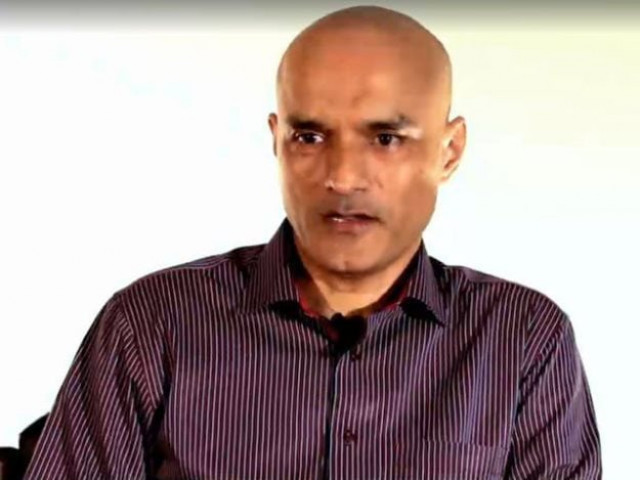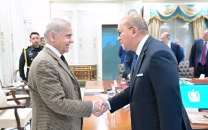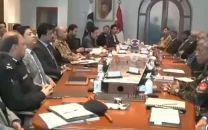Experts pore over India’s pleadings in Jadhav case
Says Pakistan will soon submit its position in The Hague court

Self-confessed Indian spy Kulbhushan Jadhav. PHOTO: File
A team of lawyers and legal experts, led by the attorney-general, is poring over the Memorial, said Foreign Office spokesperson Nafees Zakria on Friday, without specifying details of India’s written submissions.
The spokesperson said the Pakistan government would soon submit its position – especially highlighting acts of espionage, terrorism and sabotage committed by Kulbhushan Jadhav in Pakistan – in the ICJ.
India’s terror link: Aziz rules out Kulbhushan’s extradition
India had approached The Hague court in May this year, requesting it to stay Jadhav’s execution. Jadhav was handed death sentence by a military court on charges of espionage and terrorist activities.
After hearing preliminary arguments, the ICJ had asked Pakistan via its interim order not to carry out execution of the RAW agent before its final ruling.
Jadhav was arrested during a counter-intelligence raid in the Mashkhel area of Balochistan in March last year. In a video statement, he confessed to being a spy for India’s Research and Analysis Wing (RAW) who was sent to Pakistan to plan, coordinate and organise espionage and sabotage activities in Balochistan and Karachi.
In April this year, he was sentenced to death by a military court. The ICJ statement also urged the Pakistan government to inform it of all measures to comply with its order.
Islamabad had dubbed India’s decision to take Jadhav’s case to the UN court ‘political theatre’, maintaining that the ICJ needed not intervene as it had adhered to a 2008 bilateral treaty with India that supersedes the Vienna pact, according to which the right to consular access could be waived where ‘national security’ was at risk.
Attorney General Ashtar Ausaf Ali had also urged the UN court in June this year to adopt an expedited timeline for an early hearing of the case.
Pakistan urges ICJ to adopt expedited timeline for hearing
A senior official at the Foreign Office told The Express Tribune that India was trying to distract the ICJ from the real issue of the involvement of a serving Indian naval officer turned RAW operative in carrying out espionage and the killing of innocent people.
The official insisted that this was not a humanitarian issue as was being portrayed by India. “The real issue is that an Indian spy was caught red-handed,” the official said.
He said the 2008 bilateral agreement on consular access “clearly states that granting consular access to spies would be the prerogative of the host government”.
The official also pointed out that there were dozens of cases where Indian government had refused Pakistan consular access to its nationals languishing in Indian jails.



















COMMENTS
Comments are moderated and generally will be posted if they are on-topic and not abusive.
For more information, please see our Comments FAQ